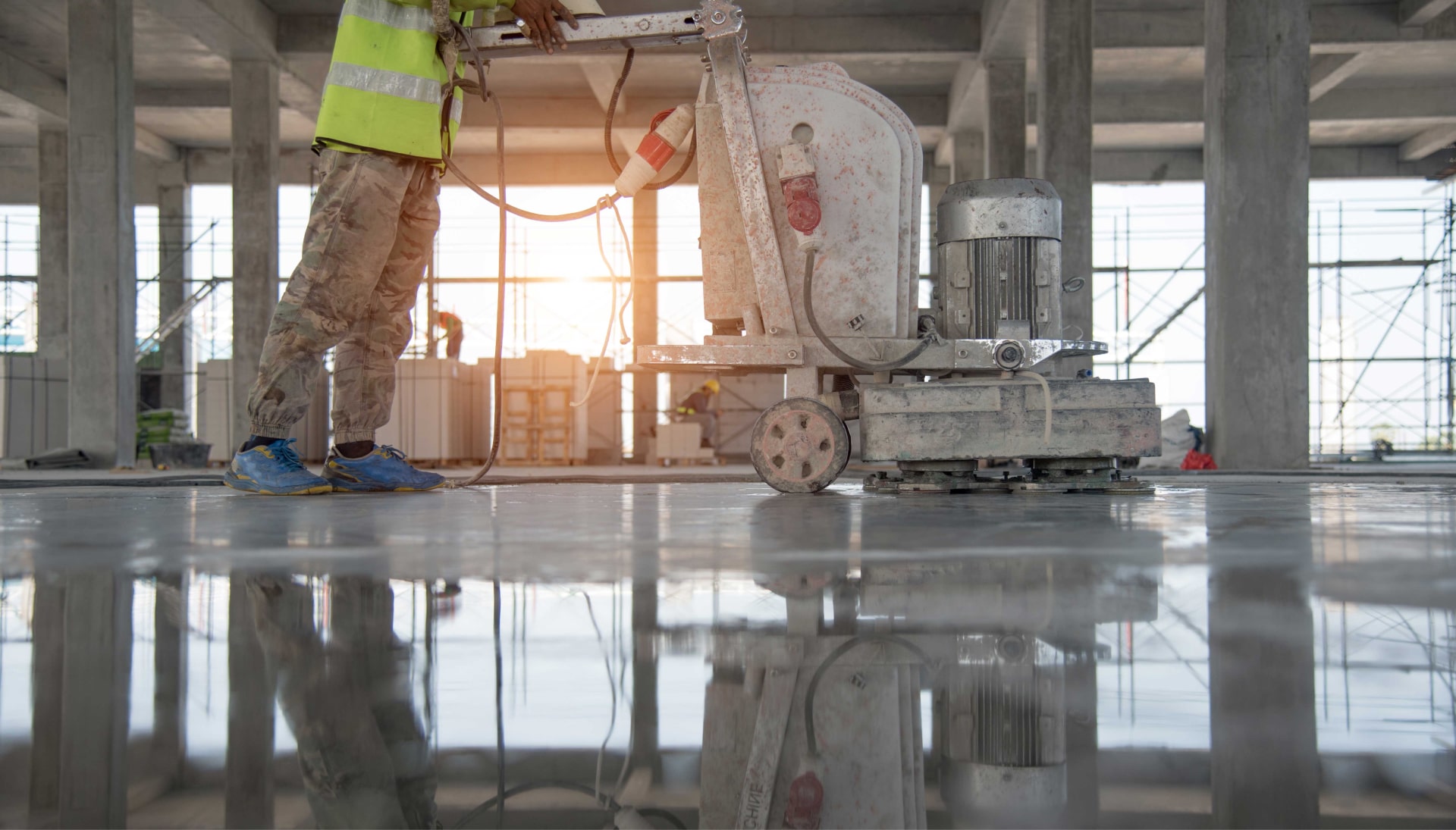Concrete Solutions for Lasting Impressions
Durable Concrete for Every Need
Concrete is more than just a building material; it’s the foundation of modern construction. At Concrete Solutions, we provide high-quality concrete services designed to meet the diverse needs of our clients. From residential driveways to large-scale commercial projects, our expertise ensures lasting durability and aesthetic appeal.
Our Comprehensive Concrete Services
We offer a wide range of concrete services, each tailored to specific project requirements. Our team of experienced professionals uses advanced techniques and top-grade materials to deliver superior results.
Residential Concrete Services
- Driveways: Enhance your home’s curb appeal with a durable and stylish concrete driveway.
- Patios: Create an outdoor living space perfect for relaxation and entertainment with a custom concrete patio.
- Walkways: Ensure safe and attractive pathways around your property with expertly installed concrete walkways.
- Foundations: Build a solid foundation for your home with our reliable concrete foundation services.
Commercial Concrete Services
- Parking Lots: Construct robust and long-lasting parking lots that can withstand heavy traffic and weather conditions.
- Sidewalks: Provide safe and accessible pedestrian routes with professionally installed concrete sidewalks.
- Building Foundations: Ensure the structural integrity of your commercial building with our expert concrete foundation services.
- Industrial Flooring: Optimize your industrial space with durable and easy-to-maintain concrete flooring solutions.
The Benefits of Choosing Concrete
Concrete offers numerous advantages over other building materials, making it a preferred choice for many construction projects. Its strength, versatility, and longevity provide excellent value and peace of mind.
Durability
Concrete is renowned for its exceptional durability, capable of withstanding heavy loads, extreme weather conditions, and everyday wear and tear. This makes it an ideal material for high-traffic areas and structures that require long-term stability.
Versatility
Concrete can be molded into various shapes and designs, allowing for creative and customized solutions. Whether you need a simple driveway or an elaborate decorative patio, concrete can be tailored to meet your specific aesthetic and functional requirements.
Cost-Effectiveness
While the initial cost of concrete may be slightly higher than some alternatives, its long lifespan and minimal maintenance requirements make it a cost-effective choice in the long run. Concrete’s resistance to damage reduces the need for frequent repairs and replacements, saving you money over time.
Sustainable Concrete Solutions
We are committed to providing sustainable concrete solutions that minimize environmental impact. Our eco-friendly practices and materials help reduce carbon footprint and promote responsible construction.
Recycled Aggregates
We use recycled aggregates in our concrete mixes, reducing the demand for virgin materials and diverting waste from landfills. This sustainable approach helps conserve natural resources and lower environmental impact.
Permeable Concrete
Our permeable concrete options allow rainwater to filter through the surface and into the ground, reducing runoff and improving water quality. This environmentally friendly solution helps manage stormwater and protect local ecosystems.
Why Choose Concrete Solutions?
Choosing Concrete Solutions means partnering with a team that is dedicated to excellence and customer satisfaction. Our commitment to quality, innovation, and sustainability sets us apart from the competition.
Experienced Professionals
Our team comprises highly skilled and experienced concrete professionals who are passionate about delivering exceptional results. With years of industry experience, we have the knowledge and expertise to handle any concrete project, regardless of size or complexity.
Quality Materials
We use only the highest quality concrete mixes and materials to ensure the longevity and performance of our installations. Our rigorous quality control processes guarantee that every project meets our stringent standards.
Customer Satisfaction
We prioritize customer satisfaction and strive to exceed expectations on every project. From initial consultation to final inspection, we work closely with our clients to ensure their vision is realized and their needs are met.
Contact Us Today
Ready to start your concrete project? Contact Concrete Solutions today for a free consultation and estimate. Let us help you create durable and beautiful concrete installations that stand the test of time.
Services
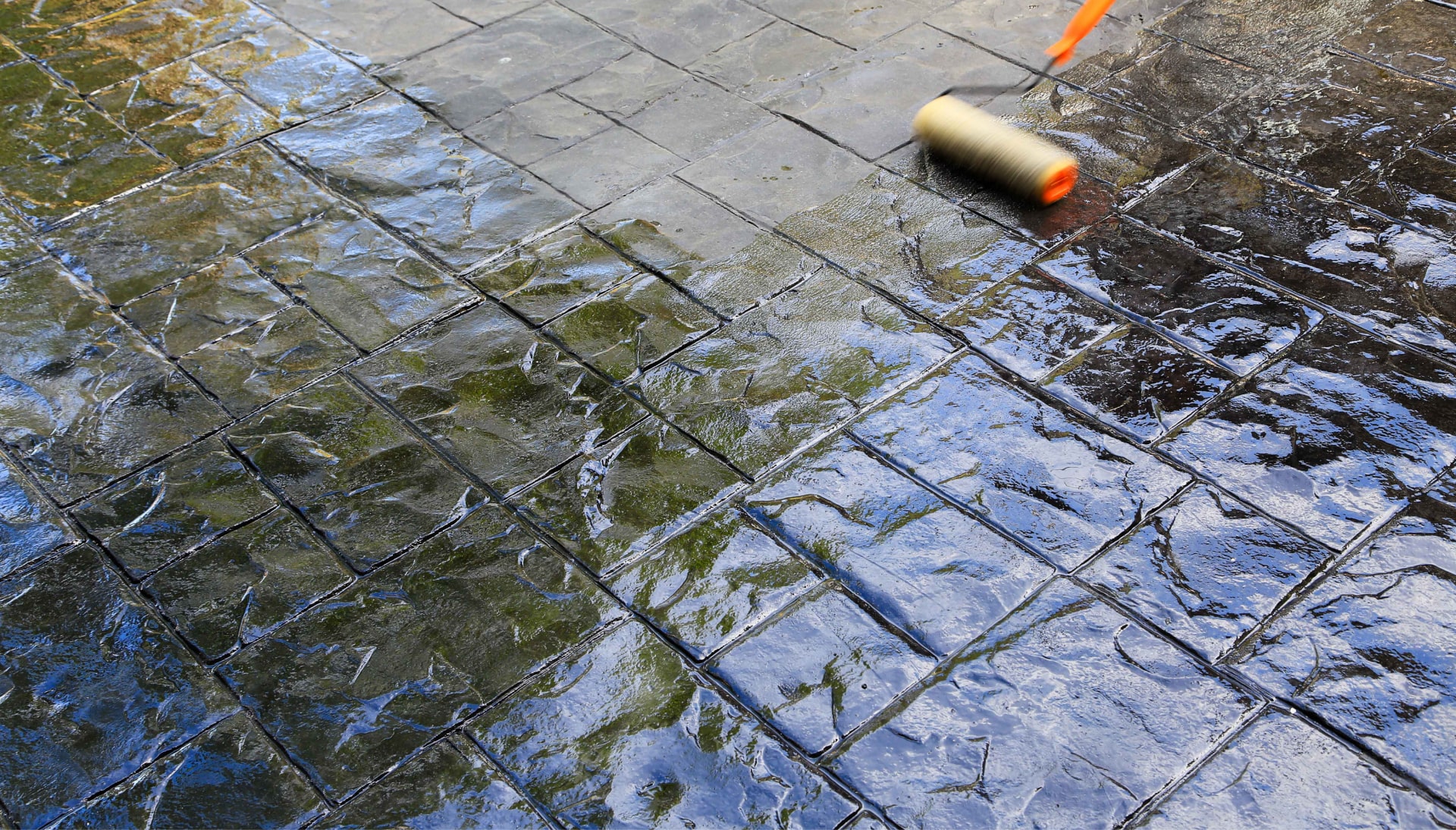
Concrete Patios in Nashville
Improve the visual appeal of your commercial or residential outdoor space with a beautiful concrete patio designed by our partners.
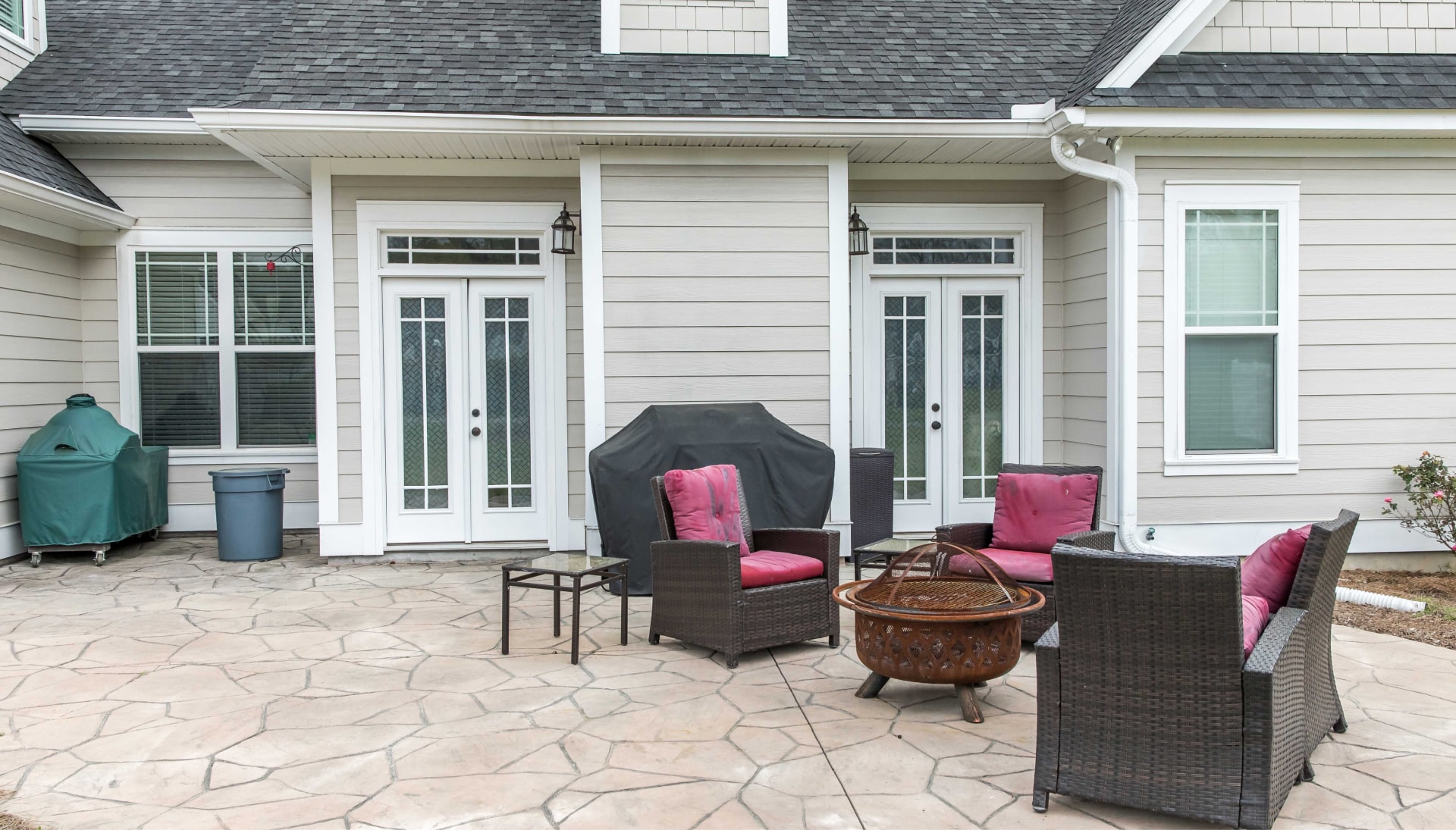
Beautiful Stamped Concrete of Nashville
Go with the standard concrete look or get creative with one of the many gorgeous designs in decorative concrete that Nashville, Tennessee locals are loving.
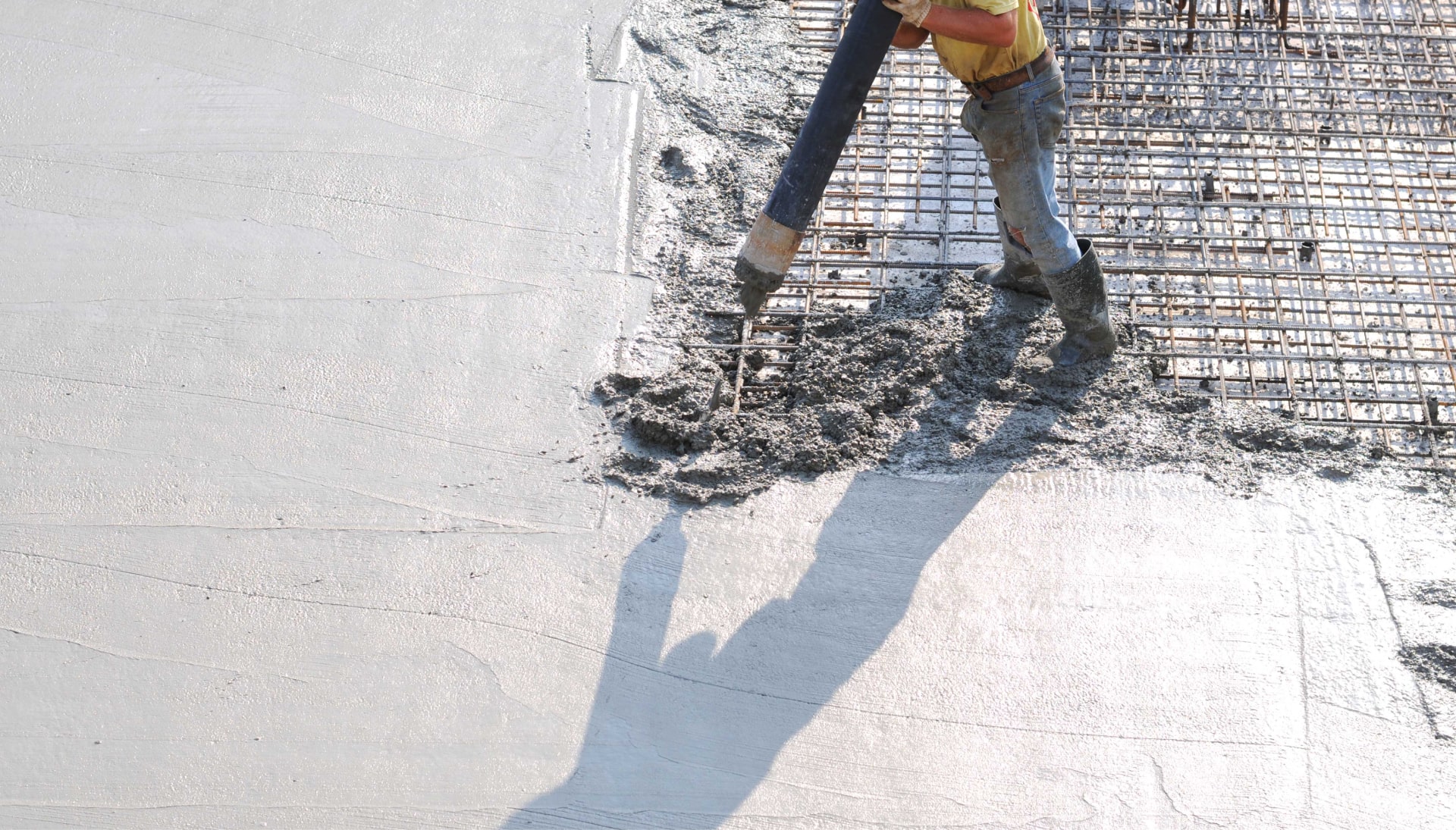
Foundation Repair in Nashville, Tennessee
No concrete repair project is too big or too small for us. We’ve got you covered whether you need concrete driveway repair, concrete foundation repair, or any other kind of concrete repair in Nashville.
Why choose Nashville Concrete Solutions for your Nashville concrete needs
The Enduring Strength and Versatility of Concrete
Concrete is more than just a construction material; it’s the foundation upon which our modern world is built. From towering skyscrapers to the simplest sidewalks, concrete provides the strength, durability, and versatility needed to shape our environment. Understanding the properties and applications of concrete is essential for anyone involved in construction, design, or home improvement.
What Makes Concrete So Special?
Concrete’s unique properties stem from its composition: a mixture of cement, water, and aggregates (sand, gravel, or crushed stone). When these components combine, a chemical reaction called hydration occurs, binding the aggregates together into a strong, stone-like material. This process gives concrete its remarkable compressive strength, allowing it to withstand enormous loads. Its versatility also shines through its ability to be cast into virtually any shape, making it ideal for a wide range of applications.
- Durability: Concrete structures can last for decades, even centuries, with minimal maintenance.
- Versatility: Concrete can be molded into any shape, making it suitable for diverse construction needs.
- Fire Resistance: Concrete is non-combustible, providing excellent fire protection for buildings.
- Cost-Effectiveness: Compared to other building materials, concrete is relatively inexpensive and readily available.
Types of Concrete and Their Uses
Not all concrete is created equal. Different applications require different types of concrete, each with its own unique properties and characteristics. Here are some common types of concrete and their typical uses:
- Normal Strength Concrete: Commonly used for sidewalks, driveways, and foundations in residential construction.
- High-Strength Concrete: Employed in high-rise buildings, bridges, and other structures requiring exceptional load-bearing capacity.
- Lightweight Concrete: Contains lightweight aggregates, reducing its weight and making it suitable for applications where weight is a concern, such as high-rise buildings and bridge decks.
- Self-Consolidating Concrete (SCC): Flows easily into forms without the need for vibration, making it ideal for complex shapes and congested reinforcement areas.
- Precast Concrete: Manufactured in a controlled environment and then transported to the construction site, offering advantages in terms of quality control and speed of construction.
Working with Concrete: Best Practices
Achieving optimal results with concrete requires careful attention to detail and adherence to best practices. Proper mixing, pouring, and curing are essential for ensuring the strength and durability of the finished product.
Mixing
The correct water-cement ratio is crucial for concrete strength. Too much water weakens the concrete, while too little makes it difficult to work with. Use a consistent mix design and thoroughly combine the ingredients.
Pouring
Pour concrete in layers, consolidating each layer to eliminate air pockets. Use a vibrator to ensure the concrete flows evenly into the formwork. Avoid pouring concrete in extreme weather conditions, such as excessive heat or freezing temperatures.
Curing
Curing is the process of maintaining moisture in the concrete to allow for proper hydration. Keep the concrete surface moist for several days after pouring, using methods such as spraying with water, covering with plastic sheeting, or applying a curing compound.
Concrete in Modern Design and Construction
Concrete is no longer just a structural material; it’s also an architectural element. Architects and designers are increasingly embracing concrete’s aesthetic potential, using it to create visually stunning and sustainable buildings. Exposed concrete walls, polished concrete floors, and decorative concrete elements are becoming increasingly popular in both residential and commercial construction.
Furthermore, advancements in concrete technology are leading to more sustainable construction practices. The development of self-healing concrete, which can repair cracks automatically, and the use of recycled aggregates are helping to reduce the environmental impact of concrete production.
Whether you’re a homeowner embarking on a DIY project or a construction professional building the next landmark, understanding the properties and potential of concrete is essential for success. With its strength, versatility, and enduring appeal, concrete will continue to shape our world for generations to come. By following best practices and embracing innovative technologies, we can unlock the full potential of this remarkable material.
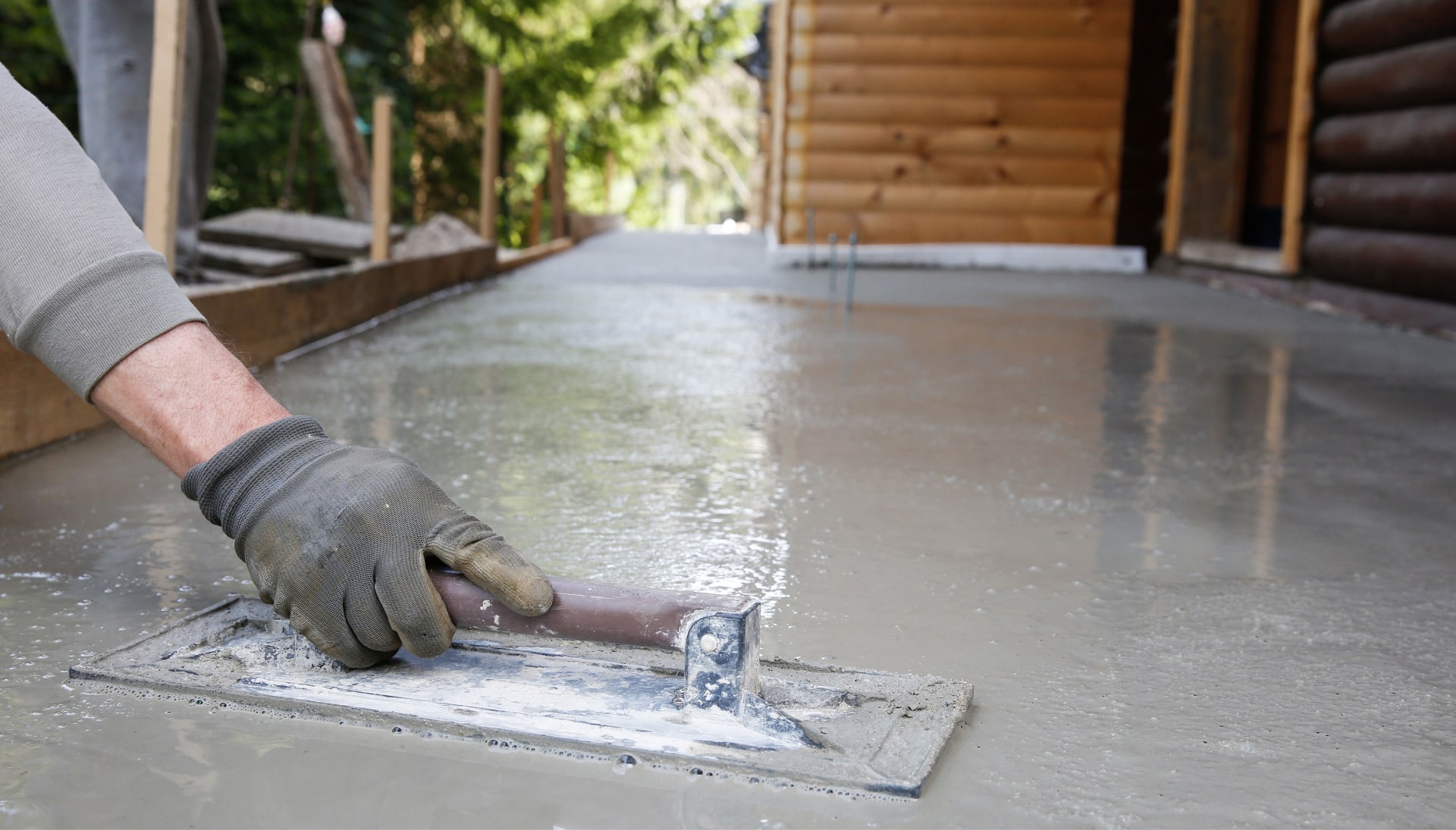
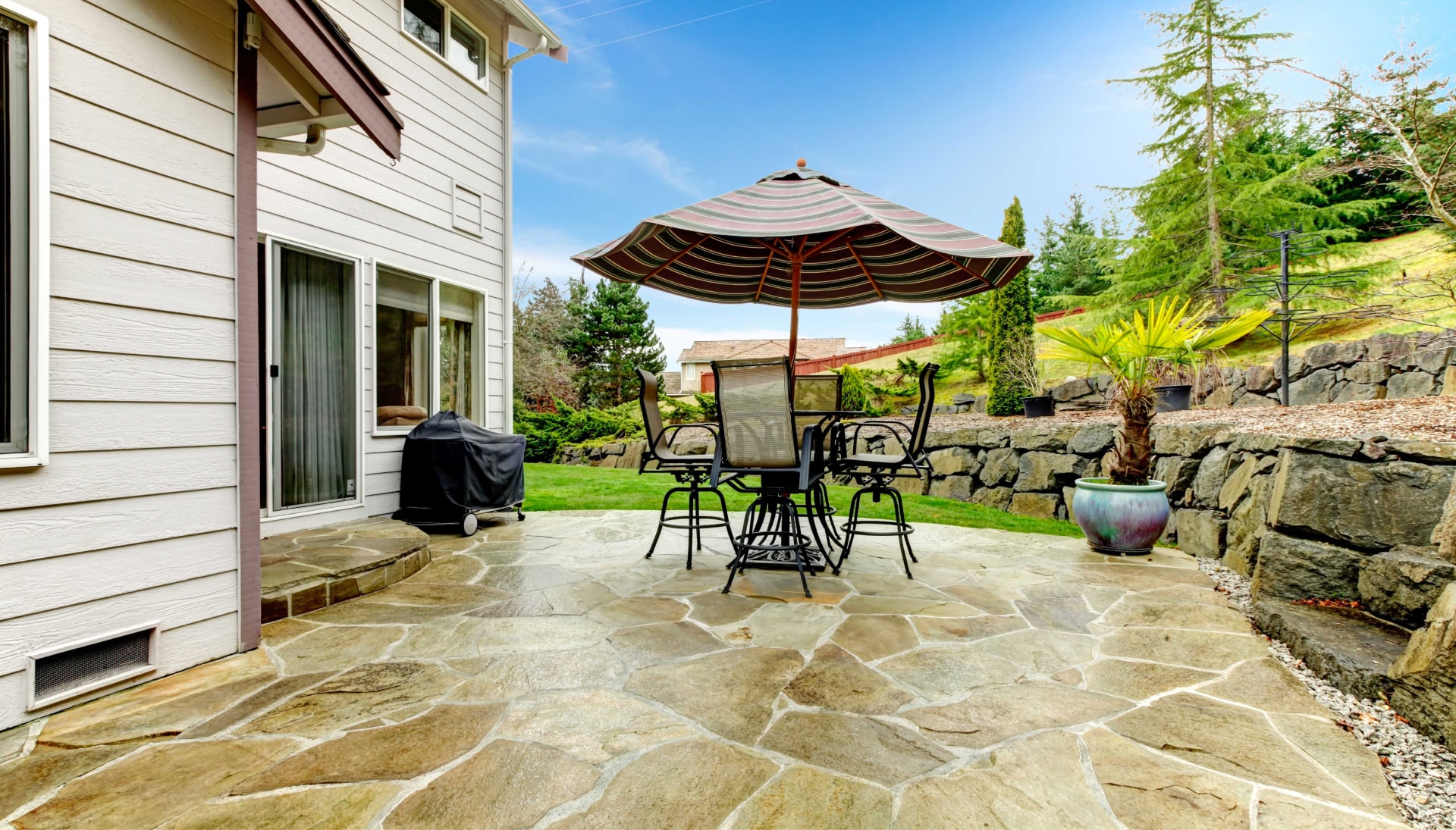
Professional Nashville Concrete Patios
Durable and Versatile: The Beauty of Concrete
Concrete. It’s more than just a construction material; it’s the foundation of our modern world. From towering skyscrapers to the sidewalks we walk on, concrete provides the strength and resilience that shapes our environment. But beyond its utilitarian purpose, concrete offers a surprising degree of versatility and aesthetic appeal, making it an excellent choice for a variety of applications.
Why Choose Concrete?
Choosing the right material for your project is crucial. Concrete stands out for several compelling reasons:
- Strength and Durability: Concrete is renowned for its ability to withstand immense pressure and resist weathering, ensuring long-lasting performance.
- Versatility: Concrete can be molded into virtually any shape, making it ideal for both structural and decorative purposes.
- Cost-Effectiveness: Compared to many other building materials, concrete is relatively inexpensive, offering excellent value for your investment.
- Low Maintenance: Once properly installed, concrete requires minimal upkeep, saving you time and money in the long run.
- Fire Resistance: Concrete is non-combustible, providing superior fire protection for buildings and structures.
- Sustainability: Concrete can be made with recycled materials and is recyclable itself, contributing to environmentally friendly building practices.
Concrete Applications: Endless Possibilities
The versatility of concrete allows for a wide range of applications, both indoors and outdoors. Here are just a few examples:
Structural Elements
Concrete is the backbone of modern construction, used extensively in foundations, walls, columns, and beams. Its compressive strength makes it ideal for supporting heavy loads and resisting the forces of nature.
Driveways and Walkways
A concrete driveway or walkway provides a durable and attractive surface that can withstand heavy traffic and harsh weather conditions. Stamped concrete can mimic the look of brick, stone, or other materials, adding a touch of elegance to your property.
Patios and Outdoor Living Spaces
Create a beautiful and functional outdoor living space with a concrete patio. Concrete can be stained, stamped, or polished to create a variety of looks, from rustic to modern. Add outdoor furniture, a fire pit, and some landscaping to create the perfect backyard retreat.
Countertops and Interior Design
Concrete countertops are becoming increasingly popular in kitchens and bathrooms. They offer a unique, industrial-chic aesthetic and can be customized with different colors, textures, and finishes. Concrete can also be used for flooring, fireplace surrounds, and other interior design elements.
Decorative Concrete
From intricate sculptures to artistic pavers, concrete can be used to create stunning decorative features. Stained concrete, stamped concrete, and exposed aggregate concrete offer endless possibilities for adding visual interest to your project.
Choosing the Right Concrete Contractor
Selecting the right contractor is essential for ensuring the success of your concrete project. Look for a company with:
- Experience: Choose a contractor with a proven track record of successful concrete installations.
- Expertise: Ensure the contractor has the knowledge and skills to handle your specific project requirements.
- Licensing and Insurance: Verify that the contractor is properly licensed and insured to protect you from liability.
- Reputation: Check online reviews and ask for references to gauge the contractor’s reputation.
- Clear Communication: The contractor should be able to clearly explain the process, answer your questions, and provide a detailed estimate.
Investing in Quality Concrete
Concrete is a versatile and durable material that can enhance the beauty, functionality, and value of your property. Whether you’re building a new home, remodeling your existing space, or simply adding a decorative touch, concrete offers a wide range of possibilities. By choosing the right concrete mix, design, and contractor, you can ensure a long-lasting and aesthetically pleasing result.
From the ground up, concrete provides the reliable and stylish solutions that homeowners and businesses alike can appreciate. Consider concrete for your next project and experience the difference!
Durable and Versatile: Discover the Strength of Concrete for Your Project
Concrete is the foundation of modern construction, known for its strength, durability, and versatility. Whether you’re planning a new driveway, a sturdy foundation, or a decorative patio, understanding the benefits of concrete is essential for a successful project. Let’s explore why concrete is the material of choice for builders and homeowners alike.
The Advantages of Choosing Concrete
- Unmatched Durability: Concrete stands the test of time. It resists weathering, erosion, and the impact of heavy loads, ensuring long-lasting performance.
- Versatile Applications: From structural components to aesthetic features, concrete can be molded and finished to suit any design.
- Cost-Effective Solution: While the initial cost may seem comparable to other materials, concrete’s longevity and minimal maintenance make it a cost-effective choice in the long run.
- Environmentally Friendly: Concrete can be made with recycled materials, reducing its environmental footprint. It also reflects sunlight, helping to lower urban temperatures.
- Fire Resistance: Concrete is non-combustible and provides excellent fire protection, enhancing the safety of your property.
Understanding Concrete Mixes and Applications
The composition of concrete can be adjusted to meet specific project requirements. Here’s a look at common types and their uses:
Standard Concrete Mix
This is the most common type, suitable for general construction purposes like sidewalks, driveways, and foundations. It provides a good balance of strength and workability.
High-Strength Concrete
Designed for projects requiring exceptional load-bearing capacity, such as bridges, high-rise buildings, and heavily trafficked roadways. High-strength concrete incorporates special additives to enhance its compressive strength.
Decorative Concrete
Used for aesthetic applications like patios, pool decks, and interior floors. Decorative concrete can be stained, stamped, or polished to create unique and visually appealing surfaces.
Preparing Your Site for Concrete Pouring
Proper site preparation is crucial for ensuring the longevity and stability of your concrete structures.
- Excavation and Grading: Remove any vegetation, topsoil, and debris from the area. Grade the soil to ensure proper drainage and a level surface.
- Formwork Installation: Construct sturdy forms to contain the concrete during pouring and curing. Ensure the forms are properly aligned and braced to prevent deformation.
- Reinforcement Placement: Install steel rebar or wire mesh to enhance the concrete’s tensile strength and prevent cracking.
- Compaction: Compact the soil base to provide a stable foundation for the concrete. Use a plate compactor to achieve uniform density.
The Concrete Pouring Process
The pouring process requires careful attention to detail to achieve the desired results.
Mixing and Transportation
Concrete is typically mixed on-site or delivered by a ready-mix supplier. Ensure the mix is consistent and free of lumps. Transport the concrete to the pouring site as quickly as possible to prevent premature hardening.
Placement and Consolidation
Pour the concrete into the forms, distributing it evenly. Use shovels or rakes to spread the concrete into corners and edges. Consolidate the concrete using a vibrator to remove air pockets and ensure proper bonding with the reinforcement.
Finishing and Texturing
Once the concrete has been poured and consolidated, use a variety of tools to achieve the desired surface finish. Options include troweling for a smooth surface, brooming for a textured finish, or stamping for a decorative pattern.
Curing: The Key to Concrete Strength
Curing is the process of maintaining adequate moisture and temperature in the concrete to promote proper hydration and strength development.
Keep the concrete moist for at least seven days after pouring. This can be achieved by covering it with plastic sheeting, burlap, or applying a curing compound. Proper curing prevents cracking and ensures the concrete reaches its full strength potential.
Concrete driveway and foundation services for your Nashville property
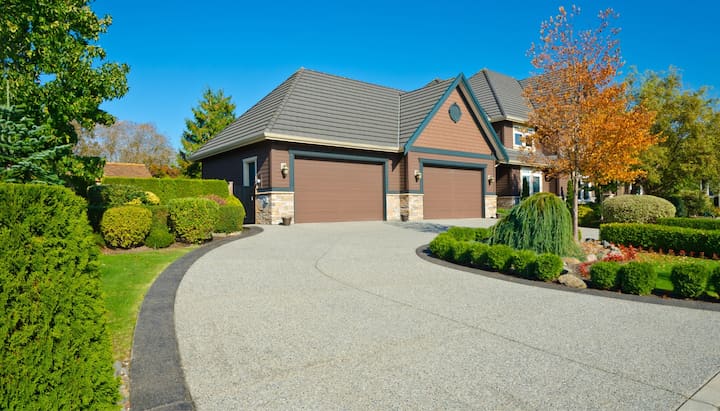
The Enduring Strength of Concrete: A Foundation for Your Future
Concrete: it’s more than just a building material; it’s the backbone of modern infrastructure. From towering skyscrapers to the foundations of our homes, concrete provides the strength, durability, and versatility needed to create lasting structures. Understanding the properties and applications of concrete is essential for anyone involved in construction, from homeowners planning a simple patio to developers overseeing large-scale projects. This section explores the key aspects of concrete, highlighting its benefits and offering practical insights for successful implementation.
Why Choose Concrete? Unveiling the Advantages
Concrete offers a multitude of advantages that make it a superior choice for a wide range of construction applications:
- Unmatched Durability: Concrete structures withstand the test of time, resisting weathering, erosion, and decay. This longevity translates to lower maintenance costs and a longer lifespan for your project.
- Exceptional Strength: Concrete’s compressive strength is legendary, allowing it to support immense loads and resist deformation. This strength is crucial for foundations, load-bearing walls, and other structural elements.
- Fire Resistance: Unlike many other building materials, concrete is non-combustible and provides excellent fire protection. This inherent fire resistance can significantly improve safety and reduce insurance costs.
- Versatility: Concrete can be molded into virtually any shape, allowing for creative and customized designs. This adaptability makes it suitable for everything from intricate architectural details to simple, functional forms.
- Cost-Effectiveness: While the initial cost of concrete may be comparable to other materials, its long lifespan and minimal maintenance requirements make it a cost-effective choice over the long term.
- Sustainability: Concrete is made from readily available materials and can be recycled, making it an environmentally responsible choice. Furthermore, its thermal mass properties can contribute to energy efficiency in buildings.
Understanding Concrete Mixes: Achieving the Right Composition
The performance of concrete depends heavily on the proper mix design. A well-balanced mix ensures optimal strength, workability, and durability. Key components of a concrete mix include:
- Cement: The binding agent that holds the concrete together. Different types of cement are available, each with specific properties suited for various applications.
- Aggregates: Inert materials, such as sand, gravel, or crushed stone, that make up the bulk of the concrete mix. Aggregates provide strength, stability, and volume.
- Water: Essential for the hydration process that allows the cement to bind the aggregates together. The water-cement ratio is a critical factor in determining the strength and durability of the concrete.
- Admixtures: Chemical additives that can be added to the concrete mix to modify its properties, such as workability, setting time, or resistance to freezing and thawing.
Careful consideration of these components and their proportions is crucial for achieving the desired concrete performance. Consulting with a concrete specialist or engineer is highly recommended for complex projects.
Applications of Concrete: From Foundations to Finishes
Concrete’s versatility makes it suitable for a vast array of applications in residential, commercial, and infrastructure projects:
- Foundations: Concrete foundations provide a stable and durable base for buildings of all sizes.
- Slabs: Concrete slabs are used for floors, driveways, patios, and other flat surfaces.
- Walls: Concrete walls offer excellent structural support and fire resistance.
- Columns and Beams: Concrete columns and beams are used to support heavy loads in buildings and bridges.
- Paving: Concrete paving is a durable and long-lasting solution for roads, sidewalks, and parking lots.
- Decorative Concrete: Concrete can be stained, stamped, or polished to create aesthetically pleasing surfaces for floors, countertops, and other decorative elements.
The possibilities with concrete are virtually endless, limited only by imagination and engineering considerations.
Ensuring Quality Concrete: Best Practices for Installation and Curing
Even the best concrete mix will fail if not properly installed and cured. Following best practices is essential for achieving optimal performance:
- Proper Preparation: Ensure the subgrade is properly compacted and prepared before placing concrete.
- Accurate Mixing: Follow the recommended mix design and ensure all components are thoroughly mixed.
- Proper Placement: Place concrete in a timely manner and avoid segregation of the mix.
- Effective Consolidation: Use vibration or other methods to consolidate the concrete and eliminate air pockets.
- Timely Finishing: Finish the concrete surface to the desired texture and smoothness.
- Adequate Curing: Keep the concrete moist for several days after placement to allow for proper hydration and strength development.
By adhering to these best practices, you can ensure that your concrete project will stand the test of time.
Conclusion: Concrete – A Solid Investment for the Future
Concrete is a reliable, versatile, and cost-effective building material that forms the foundation of our modern world. Its durability, strength, and fire resistance make it an ideal choice for a wide range of applications. By understanding the properties of concrete, selecting the right mix design, and following best practices for installation and curing, you can ensure that your concrete project will provide lasting value and contribute to a sustainable future. Whether you are building a new home, renovating an existing structure, or developing a large-scale infrastructure project, concrete is a solid investment that will serve you well for years to come. Consider concrete; build strong!
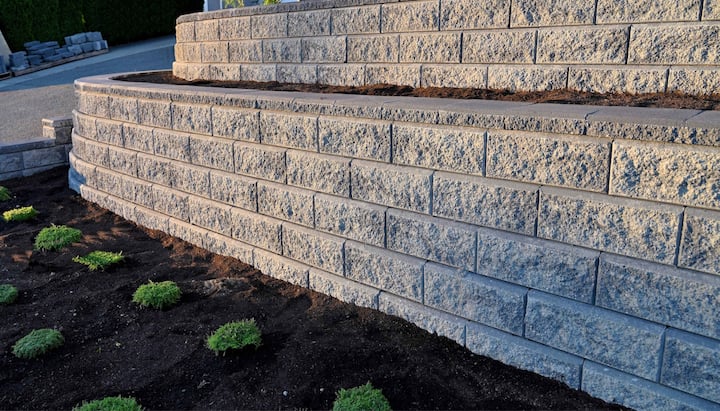
Durable and Versatile Concrete Solutions for Your Project
Concrete is more than just a construction material; it’s the foundation upon which we build our homes, businesses, and infrastructure. Its strength, durability, and versatility make it an indispensable choice for a wide range of projects, from simple backyard patios to complex commercial buildings.
The Enduring Appeal of Concrete
Why do so many builders and homeowners rely on concrete? The answer lies in its unique combination of beneficial properties:
- Strength: Concrete can withstand immense pressure, making it ideal for load-bearing structures.
- Durability: Resistant to weathering, erosion, and pests, concrete structures stand the test of time.
- Versatility: Concrete can be molded into virtually any shape, allowing for creative and functional designs.
- Cost-Effectiveness: Compared to other materials, concrete offers a long-term, cost-effective solution for construction needs.
Applications of Concrete in Modern Construction
Concrete’s adaptability makes it suitable for diverse applications:
- Foundations: Providing a stable and robust base for buildings of all sizes.
- Driveways and Walkways: Offering durable and attractive surfaces for residential and commercial properties.
- Patios and Outdoor Living Spaces: Creating inviting and long-lasting areas for relaxation and entertainment.
- Walls and Retaining Structures: Providing structural support and preventing soil erosion.
- Decorative Concrete: Enhancing aesthetic appeal through stamped, stained, or polished finishes.
Choosing the Right Concrete Mix
Selecting the appropriate concrete mix is crucial for ensuring the success of your project. Factors to consider include:
- Strength Requirements: Different projects require different compressive strengths, measured in pounds per square inch (psi).
- Exposure Conditions: Consider the climate and potential exposure to moisture, chemicals, and freeze-thaw cycles.
- Workability: Choose a mix that is easy to pour and finish, ensuring a smooth and level surface.
- Additives: Explore the use of additives to enhance specific properties, such as accelerating or retarding setting time, or improving workability.
Ensuring Quality Concrete Installation
Proper installation is essential for maximizing the lifespan and performance of concrete structures. Key steps include:
- Proper Site Preparation: Clearing and compacting the subgrade to provide a stable base.
- Accurate Formwork: Building sturdy forms that accurately define the shape and dimensions of the concrete structure.
- Reinforcement: Incorporating rebar or wire mesh to enhance tensile strength and prevent cracking.
- Proper Mixing and Pouring: Ensuring a consistent mix and pouring the concrete in layers to avoid air pockets.
- Curing: Maintaining moisture levels during the curing process to allow the concrete to gain strength and durability.
The Future of Concrete
Innovation continues to drive advancements in concrete technology. Researchers are exploring new materials and techniques to create stronger, more sustainable, and more versatile concrete solutions. From self-healing concrete to carbon-sequestering mixes, the future of concrete is bright, promising even greater possibilities for construction and design.
Whether you’re planning a small home improvement project or a large-scale construction endeavor, understanding the properties and applications of concrete is essential for achieving lasting success. By choosing the right mix, ensuring proper installation, and staying informed about the latest advancements, you can harness the power of concrete to build a solid foundation for the future.
Transforming Spaces with Concrete: Beauty, Durability, and Design
Concrete is more than just a building material; it’s a design element that brings durability and style to any space. Whether you’re envisioning a modern kitchen, a robust driveway, or an artistic patio, concrete offers the versatility and strength to bring your ideas to life. Discover how our expert services can transform your property with this remarkable material.
The Enduring Appeal of Concrete
Concrete’s popularity stems from its remarkable blend of practicality and aesthetic potential. It withstands the elements, resists wear and tear, and provides a foundation for countless design possibilities. From sleek, polished surfaces to textured, decorative finishes, concrete adapts to any style, making it a favorite among homeowners and designers alike.
- Durability: Concrete stands up to heavy use and harsh weather, ensuring long-lasting performance.
- Versatility: It can be molded, colored, and textured to match any design vision.
- Sustainability: Concrete is made from readily available materials and can be recycled, making it an environmentally conscious choice.
- Cost-Effectiveness: Its longevity and minimal maintenance requirements provide excellent value over time.
Our Concrete Services: Tailored to Your Needs
We provide a comprehensive range of concrete services to meet your specific needs and preferences. Our team of skilled professionals is dedicated to delivering superior craftsmanship and exceptional results, ensuring your project is completed to the highest standards.
Concrete Driveways: Strength and Style Combined
A concrete driveway is more than just a place to park your car; it’s a welcoming entrance to your home. We offer a variety of finishes, including stamped, colored, and exposed aggregate, to enhance your curb appeal and create a lasting impression. Our driveways are built to withstand heavy loads and resist cracking, providing years of reliable service.
Concrete Patios: Creating Outdoor Sanctuaries
Imagine relaxing on a beautifully designed concrete patio, surrounded by lush greenery and comfortable seating. We can create the perfect outdoor oasis for you, with custom designs that reflect your personal style. Whether you prefer a smooth, modern look or a rustic, textured feel, our patios provide a durable and attractive space for entertaining and relaxation.
Concrete Foundations: Building a Solid Future
A strong foundation is essential for any structure, and concrete is the ideal material for ensuring stability and longevity. We specialize in pouring and finishing concrete foundations for homes, garages, and additions, providing a solid base for your construction project. Our meticulous attention to detail and adherence to industry best practices guarantee a foundation that will stand the test of time.
Decorative Concrete: Adding Artistic Flair
Transform ordinary surfaces into works of art with our decorative concrete services. We offer a range of techniques, including stamping, staining, and polishing, to create unique and eye-catching designs. Whether you’re looking to add a touch of elegance to your interior floors or create a stunning outdoor feature, our decorative concrete solutions will elevate your space.
Why Choose Us for Your Concrete Project?
Selecting the right contractor is crucial for the success of your concrete project. With our experience, expertise, and commitment to customer satisfaction, we are confident that we can exceed your expectations and deliver exceptional results.
- Experienced Professionals: Our team has years of experience in all aspects of concrete work, ensuring quality craftsmanship and attention to detail.
- Custom Design Solutions: We work closely with you to develop designs that meet your specific needs and preferences.
- Quality Materials: We use only the highest quality concrete mixes and sealants to ensure long-lasting durability and performance.
- Timely Completion: We understand the importance of meeting deadlines and strive to complete every project on time and within budget.
Ready to transform your space with the beauty and durability of concrete? Contact us today to schedule a consultation and discover how our expert services can bring your vision to life. Let us help you create a space that is both functional and aesthetically pleasing, with concrete solutions that stand the test of time.
Why Choose Concrete for Your Next Project?
Concrete is more than just a building material; it’s the foundation of modern infrastructure and design. Its versatility, durability, and cost-effectiveness make it an ideal choice for a wide range of projects, from residential driveways to large-scale commercial developments. Discover the benefits of choosing concrete for your next construction endeavor.
Unmatched Durability and Longevity
One of the primary reasons concrete is so widely used is its exceptional durability. Concrete structures can withstand extreme weather conditions, resist fire damage, and endure heavy loads, ensuring a long lifespan with minimal maintenance. This longevity translates to significant cost savings over time, as you’ll avoid frequent repairs or replacements.
- Weather Resistance: Concrete is highly resistant to damage from rain, snow, and ice, making it suitable for any climate.
- Fire Resistance: Concrete does not burn and can protect underlying structures from fire damage.
- Load-Bearing Capacity: Concrete can support significant weight, making it ideal for foundations, walls, and roadways.
Versatility in Design and Application
Concrete’s adaptability allows for a wide range of design possibilities. It can be molded into virtually any shape, colored to match any aesthetic, and textured to provide different finishes. Whether you’re looking for a sleek, modern look or a rustic, natural appearance, concrete can be tailored to meet your specific design needs.
Applications of Concrete:
- Foundations: Provides a stable and durable base for buildings.
- Driveways and Walkways: Offers a long-lasting and attractive surface for residential and commercial properties.
- Patios and Outdoor Living Spaces: Creates a durable and customizable area for outdoor enjoyment.
- Walls and Structural Elements: Provides strength and stability for building construction.
Cost-Effectiveness and Sustainability
While the initial cost of concrete may be comparable to other building materials, its long-term cost-effectiveness is undeniable. Its durability reduces the need for frequent repairs, and its thermal mass properties can help lower energy consumption in buildings. Additionally, concrete can be made with recycled materials, contributing to sustainable construction practices. Choosing concrete is not only a sound financial decision but also an environmentally responsible one.
Selecting the right material is crucial for the success and longevity of your project. With its superior durability, design versatility, and cost-effectiveness, concrete offers a compelling solution for various construction needs. Contact us today to learn more about how concrete can benefit your next project and ensure a solid foundation for the future.
Did we miss anything?
The Strength and Versatility of Concrete
Concrete is a foundational material in modern construction, renowned for its durability and adaptability. From towering skyscrapers to simple sidewalks, concrete provides the backbone for the infrastructure that shapes our world. Understanding the properties and applications of concrete is essential for anyone involved in building and design.
What is Concrete?
Concrete is a composite material primarily composed of cement, water, and aggregates (such as sand, gravel, or crushed stone). When mixed, the cement hydrates and binds the aggregates together, forming a strong, stone-like mass. The specific proportions of these ingredients determine the concrete’s strength, workability, and other characteristics.
Key Properties of Concrete
- Compressive Strength: Concrete excels at resisting compressive forces, making it ideal for load-bearing structures.
- Durability: Properly mixed and cured concrete can withstand harsh environmental conditions for decades.
- Versatility: Concrete can be molded into virtually any shape, allowing for creative and functional designs.
- Cost-Effectiveness: Compared to other building materials, concrete is relatively inexpensive and readily available.
- Thermal Mass: Concrete’s ability to absorb and store heat can contribute to energy efficiency in buildings.
Types of Concrete
The composition of concrete can be adjusted to meet specific project requirements. Here are some common types:
- Standard Concrete: The most common type, used for general construction purposes.
- High-Strength Concrete: Designed to withstand extremely high loads, often used in high-rise buildings and bridges.
- Lightweight Concrete: Uses lightweight aggregates to reduce the overall weight of the structure.
- Self-Consolidating Concrete: Flows easily into forms without the need for vibration, ideal for complex shapes.
- Reinforced Concrete: Incorporates steel reinforcement (rebar) to enhance tensile strength.
Applications of Concrete
Concrete’s versatility makes it suitable for a wide array of applications, including:
- Foundations: Providing a stable base for buildings and other structures.
- Walls: Creating durable and fire-resistant walls.
- Floors: Offering a smooth, level surface for residential and commercial spaces.
- Roads and Bridges: Withstanding heavy traffic loads and environmental stresses.
- Dams and Reservoirs: Impounding water for irrigation, power generation, and flood control.
- Decorative Elements: Creating aesthetically pleasing features such as patios, walkways, and sculptures.
Working with Concrete
Successful concrete construction requires careful planning and execution. Key considerations include:
- Mix Design: Selecting the appropriate proportions of cement, water, and aggregates to achieve the desired properties.
- Formwork: Creating molds to contain the concrete while it hardens.
- Placement: Pouring and consolidating the concrete to eliminate air pockets and ensure proper bonding.
- Curing: Maintaining adequate moisture and temperature to promote proper hydration and strength development.
- Reinforcement: Installing steel rebar to enhance tensile strength and prevent cracking.
Sustainability of Concrete
While concrete is a durable and versatile material, its production can have environmental impacts. The cement industry is a significant source of carbon dioxide emissions. However, efforts are underway to reduce concrete’s carbon footprint through:
- Using supplementary cementitious materials (SCMs): Replacing a portion of the cement with industrial byproducts such as fly ash or slag.
- Developing alternative cement formulations: Exploring new cement chemistries with lower carbon emissions.
- Implementing carbon capture and storage technologies: Capturing CO2 emissions from cement plants and storing them underground.
- Promoting the use of recycled aggregates: Utilizing crushed concrete from demolition projects as aggregate in new concrete mixes.
The Future of Concrete
Ongoing research and innovation are constantly improving the properties and sustainability of concrete. Self-healing concrete, which can automatically repair cracks, and smart concrete, which incorporates sensors to monitor its condition, are just a few examples of the exciting possibilities on the horizon. As technology advances, concrete will continue to play a vital role in building a more resilient and sustainable future.
